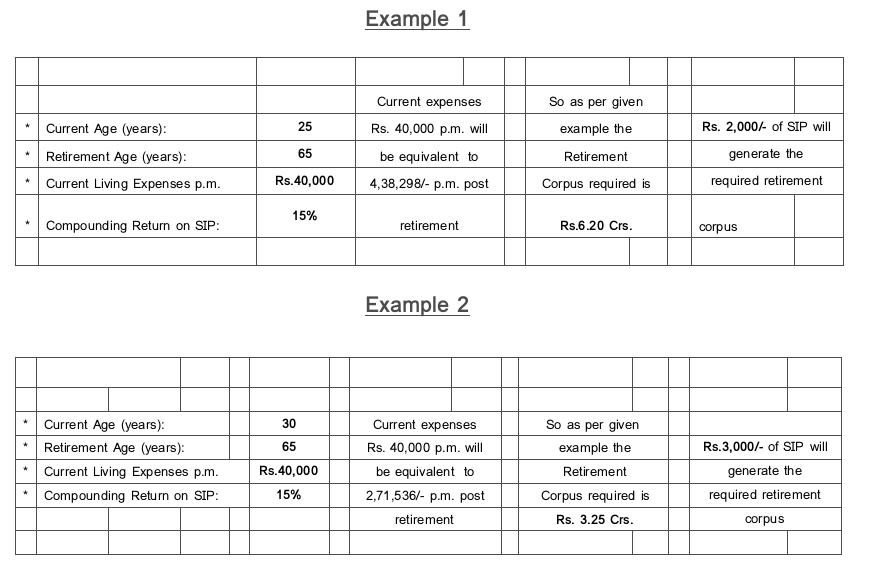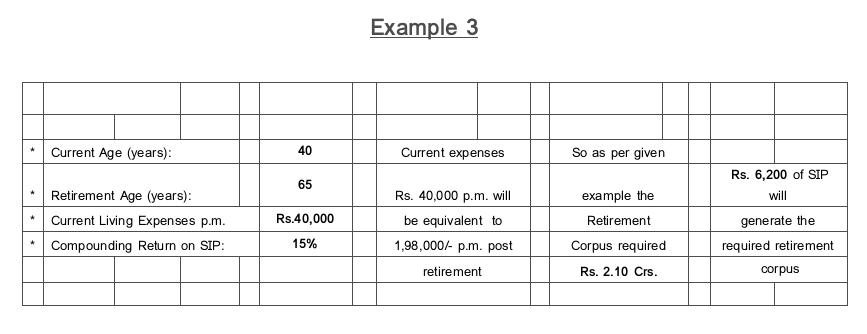What is an IPO?
Initial Public Offering (IPO) is the process by which a company issues its share to the public for the first time. It is a route adopted by the promoters of companies to receive funds (capital) from the (primary) market to meet the business purposes. Upon the conclusion of IPO process, shares are listed on the stock exchange(s). Once listed, shares can be traded in the open market.
The process of raising the capital through primary market is regulated by the Securities and Exchange Board of India (SEBI) (Issue of Capital and Disclosure Requirements) Regulations, 2018. Some of the key steps in launching an IPO include:

1. Filing of ‘Draft Offer Document’ with SEBI –
i. Once a company decides to come out with an IPO, it needs to prepare an elaborate offer document. This document contains information about the company such as its business and operations, promoters and management, financials, purpose(s) for which IPO proceeding will be used, etc. However, it does not contain date of opening and closing of the issue. This document is filed by the SEBI registered merchant banker, appointed by the company with SEBI for its vetting.
ii. Regarding the price of the shares, there are two options available to company. It may either decide the price of the shares itself or let the market forces decide the final price of issue. The first approach is known as ‘Fixed Price Issue’ and second is known as ‘Book Building Process’.
iii. In the book building process, the merchant banker decides a floor price (or minimum price) and cap price (or maximum price). The interested public may offer / bid for the shares of the company as per the given price band.
iv. The ‘Draft Offer Document’ is known as ‘Draft Prospectus’ in case of a fixed price issue. In a book building issue, it is known as ‘Draft Red Herring Prospectus’ (DRHP). Nowadays, most of the companies do not fix the price of shares themselves; rather they adopt book building process, which is actually a demand and supply based price discovery mechanism.
2. SEBI reviews the DRHP (or Draft Prospectus) and communicates its observation(s), if any to company. Company is required to provide required clarification / further information to SEBI and make required changes in the DRHP.
3. After receiving SEBI’s clearance, company finalizes the dates of opening and closing of issue and mentions the same in the document. Now, the document is known as ‘Red Herring Prospectus’ (RHP) or Prospectus, as the case may be. The issuer company needs to file RHP / Prospectus with the concerned ‘Registrar of Companies’ (ROC).
4. After filing of the RHP / Prospectus with ROC, the company puts the issue in the market; means invites public to invest in the shares of the company. The interested public / investors may apply for the shares through any registered stock broker or online. Many of the banks enable their customers to apply for the IPO through the net banking facility also.
5. Once the issue closes, the company allots the shares to applicants. Successful applicants are issued shares in paper form or demat form, as per the option selected by them. If the IPO was through a book building process, the final issue price is decided by the company on the basis of bids (offers) received from different applicants.
6. After allotment of shares, company files a ‘Final Prospectus’ with concerned ROC. After completion of certain formalities, the Stock Exchange(s) makes the shares available for trading on their platform.
Why do companies come out with an IPO?
Some of the major reasons for a company to come out with an IPO include:
Raising capital
Capital is the most basic element any business requires to grow. Scaling-up a business requires large amounts of investment in establishing or expanding manufacturing capabilities, research and development, new product development, geographic expansion, etc. IPO helps company to get the capital it is looking for, generally at lower cost than the borrowed funds.
Financial prudence
There are number of sources from where the business can start such as borrowing from banks, private loans and seed capital from venture capital firms. As the business grows, it makes financial sense to retire some of these debts. An IPO is one way to convert this debt to equity or an exit strategy for venture capital firms to recover their investment
Visibility and credibility
Getting listed on a stock exchange, post IPO gives visibility and lends credibility to the company. This facilitates access to new customers and markets thus contributing to the top line of the company.
What is an FPO?
Follow-on Public Offer (FPO) is issue of further shares to the public by a listed company. An FPO is made by company to raise funds for a special requirement like acquiring another company or to fuel its diversification, expansion or growth plans.
What is an OFS?
An Offer for Sale (OFS) is an offer to sell the shares by an existing shareholder of the company to the public. Therefore, it does not result in increase in the capital of the company. Only the shareholders change. This is a common route adopted by the government to divest or reduce its holdings in Public Sector Units.
IPO as well as FPOs may be for fresh shares or existing shares.
What is a Rights Issue?
When a company offers fresh shares to its existing shareholders in proportion to their holding of old shares, it is known as Rights issue. Offer document of such issue is known as ‘Letter of Offer’.’
A Composite Issue involves issue of fresh shares to public and rights issue by a listed company.
Things to look at before investing in a Public Issue
Offer Documents are published to enable prospective investors to take a decision on whether or not to apply for the issue. It contains detailed information about the company, its business, people, projects and future prospects. Generally, the offer documents are quite big, running into more than 100 pages, typically. While all the sections are important, there are few, mentioned below, which needs special attention from an investor’s point of view.
Risk factors
This is a commentary on the internal and external risks faced by the company. It details the industry landscape including the current competitors, prospective disruptors and future contenders. It also covers the regulatory and policy-related aspects that could affect the future of the company.
About the company
This section covers the details of about the company including its history, business operations, business model and strategy as well as its competitive strengths. It also talks about the promoters, management and board of directors of the company and their compensation as well as corporate structure, subsidiaries and related party transactions.
Financial information
The financial health of the company is a key factor in making an investment decision. This section reveals the company’s historical performance and includes the Balance Sheet and Profit & Loss Statement. Pay special attention to the company’s capital structure and debt levels to gauge its financial wellbeing and future prospects.
Legal issues and contingencies
This is a listing of all outstanding litigations and material developments related to the issuing company and its subsidiaries as well as the promoters of the group and their business interests. Any issue that jeopardizes the fundamentals of the company or risks continued operations is a red flag.
What do you need for investing in an IPO / FPO?
Applying for an IPO or FPO has two key pre-requisites:
1. Bank Account
Payment for all the public issues needs to be paid through an instrument ‘Application Supported by Blocked Amount’ (ASBA), which in turn requires you to have a bank account. You need to have sufficient balance in your bank account, sufficient to enable your bank to debit your account to extent of amount you have applied for.
2. Demat Account
You need to have a demat account to keep the shares once they are allotted to you. You need to mention details of your demat account (DP ID and Client ID) in the IPO application. As per recent amendment in Companies (Prospectus and Allotment of Securities) Rules, 2014, all the issues of unlisted public limited companies will be compulsorily in demat form.
In case you do not have a demat account, you can open the same with any SEBI registered Depository Participant.
How to apply for an IPO?
1. Fill up the IPO form and submit it to any authorized stock broker or Syndicate bank.
2. Submit online application through your bank or RTA’s website.
What care should be exercised while making online application in IPO?
- Mention correct details of your demat account (DP ID and Client ID).
- Specify the number of shares you want to apply.
- Mention the price for your bid - In case of a book-building IPO, you need to mention the price (between floor price and cap price) at which you are willing to purchase the shares. Incase you are willing to pay the market determined price, you may select ‘Cut off’ price in the application.
- Multiple bids: Investors are permitted to make up to three bids for an IPO. This allows you to hedge your risks and increase your chances of getting an allotment at the desired price. It is important to remember that permission is upto 3 multiple bids and not multiple applications.
- Verify your order before final submission of the form.
- Withdrawal of application: Applications can be withdrawn or cancelled at any time before the issue closes.
For retail / small investors, it is better to obtain professional advice before taking an investment decision.
Common reasons for rejection of an IPO application of an investor
Below are some common reasons for the rejection of an IPO application:-
- Absence of or incorrect DP ID / Client ID on the application
- Absence of or incorrect PAN on the application
- Mismatch in the name of the applicant as per demat account and PAN card
- Insufficient funds in the bank account
- Multiple application by the same investor
- Applying for a lower number of shares than the minimum requirement
- Bids lesser than the floor price or more than the cap price
- If application is in excess of Rs.2,00,000 and is applied in retail investor category
Will I get the shares for sure if I apply?
Applying for shares in IPO / public issue does not guarantee the allotment of shares. Whether you will get shares or not and how much, are dependent on two things – how much is the demand in the category you are applying and some luck. In case of over subscription (that is demand of shares being much more than the shares being offered by the issuer company), you may get shares less than what you apply for or may be nothing. The formula for allotment of shares is decided by the Registrar to the Issue, as per applicable guidelines.
How would I know that I have got the shares?
There are two ways. First you would get an allotment advice from the registrar to the issue, post allotment, mentioning the shares applied for and shares allotted, among other things. Most registrars now send email / SMS alerts also upon the completion of allotment process. Another way is to check balance in your demat account, on the next day of allotment of shares by the company.
Will I get money back if I do not get any share?
One major benefit of ASBA facility is that your application money remains in your bank account, till you get the shares. In case, you are not allotted any share or get lesser number of shares than you have paid for, the money to that extent is released by the banker.
Benefits of investing in IPOs
Get a head start
IPOs provide investors with an opportunity to become early shareholders in good companies that demonstrate a potential for growth. The stock price of companies with strong fundamentals will rise in future thus making your investment worth your time and money.
SEBI provisions permit issuer to offer a discount which typically could be up to 5% on the floor price. For retail investors, this offers a direct advantage to get shares at a lower price.
Level playing field
An IPO is one of the few investment avenues that offer a level playing field for investors of all shapes and sizes. The pre-determined price or a price band for bidding applies to all investors alike. Additionally, unlike the secondary market, the information about the company that is available to the public is the same as it is for institutional investors, making it the best opportunity to get in.
Best practices for investing in IPOs
Do not borrow funds to invest in an IPO
While IPOs sound lucrative as a short-term investment opportunity, it is not advisable to borrow money to invest in an IPO. At the end of the day, an IPO is an equity investment, so all market-related risks also apply to it. IPOs do not guarantee any returns or even an assurance about the post-listing trading price. Unless if you have sufficient funds to invest in an IPO, it is advisable to avoid investing in IPOs through borrowed funds.
IPO strategy and investment horizon
Your strategy to invest in an IPO needs to be based on your investment objective and time horizon. ‘Flipping’ is a strategy that involves selling the allotted shares on the listing day itself to profit from listing of shares at a higher price. However, if share gets listed lower than the bid price, investors would have to bear the losses if he sells. It is best to decide in advance the level / time, when you must exit from the share.funds.
No investment on the basis of tips / insider information
Never ever base your investment decision on ‘tips’ from friends or hearsay recommendations by your brokers. While, it is OK to seek professional help from qualified advisors or experts, you must do your homework. Ultimately, it’s your money. Another thing to avoid is investing on the basis of ‘insider information’. Insider information is information which is generally not available publically. Any transaction undertaken on the basis of such information is illegal.
All that glitters is not gold
The IPO process involves a lot of promotions using advertisements as well as opinions shared by so-called market experts and thought leaders. While it is not possible to ignore all the noise; as an investor, it is your responsibility to conduct your own research and separate the substance from the noise before taking a decision.
Myths about IPOs
All IPOs offer high returns
There is no guarantee that investing through IPO would essentially result in gains. It is possible that issue may open at a discount upon its listing or it may not attain the price level expected by you for the expected time horizon.
A company floating an IPO must be financially strong
Though there are several SEBI specified norms pertaining to the financial performance of companies intending to go public, there are numerous technicalities involved. Companies usually float an IPO after reaching a certain maturity in business and raise funds for expansion and growth. However, some companies may do it at a very early stage or even to stay afloat.
Always look at the offer document to understand the purpose of the IPO. If it is to pay off debt or to meet the capital shortfall in ongoing operations, it is going to put money at relatively more risk.
If an IPO is oversubscribed, it must be good
Oversubscription is often touted as a key parameter of an IPO’s prospects by those who are selling it. As with any investment, stay away from the herd mentality and rely on your own homework and professional advice.
Some terminology used:-
1. Abridged Prospectus is an abridged version of offer document in public issue and is issued along with the application form of a public issue. It contains all the salient features of the prospectus.
2. Prospectus is an offer document in case of a public issue which has all relevant details including price and number of shares. This document is registered with ROC before the issue opens in case of a fixed price issue and after the closure of the issue in case of a book built issue.
3. Shelf prospectus is a prospectus which enables an issuer to make a series of issues with in a period of 1 year without the need of filing a fresh prospectus every time. This facility is available to public sector banks, schedule banks and public financial institutions.
4. Greenshoe option is a price stabilising mechanism in which the underwriters are permitted to buy additional shares at the offer price subject to a cap of 15% of the issue size. These shares are used to stabilise the price in case of over-allotment.
Suggested Resources for reference







